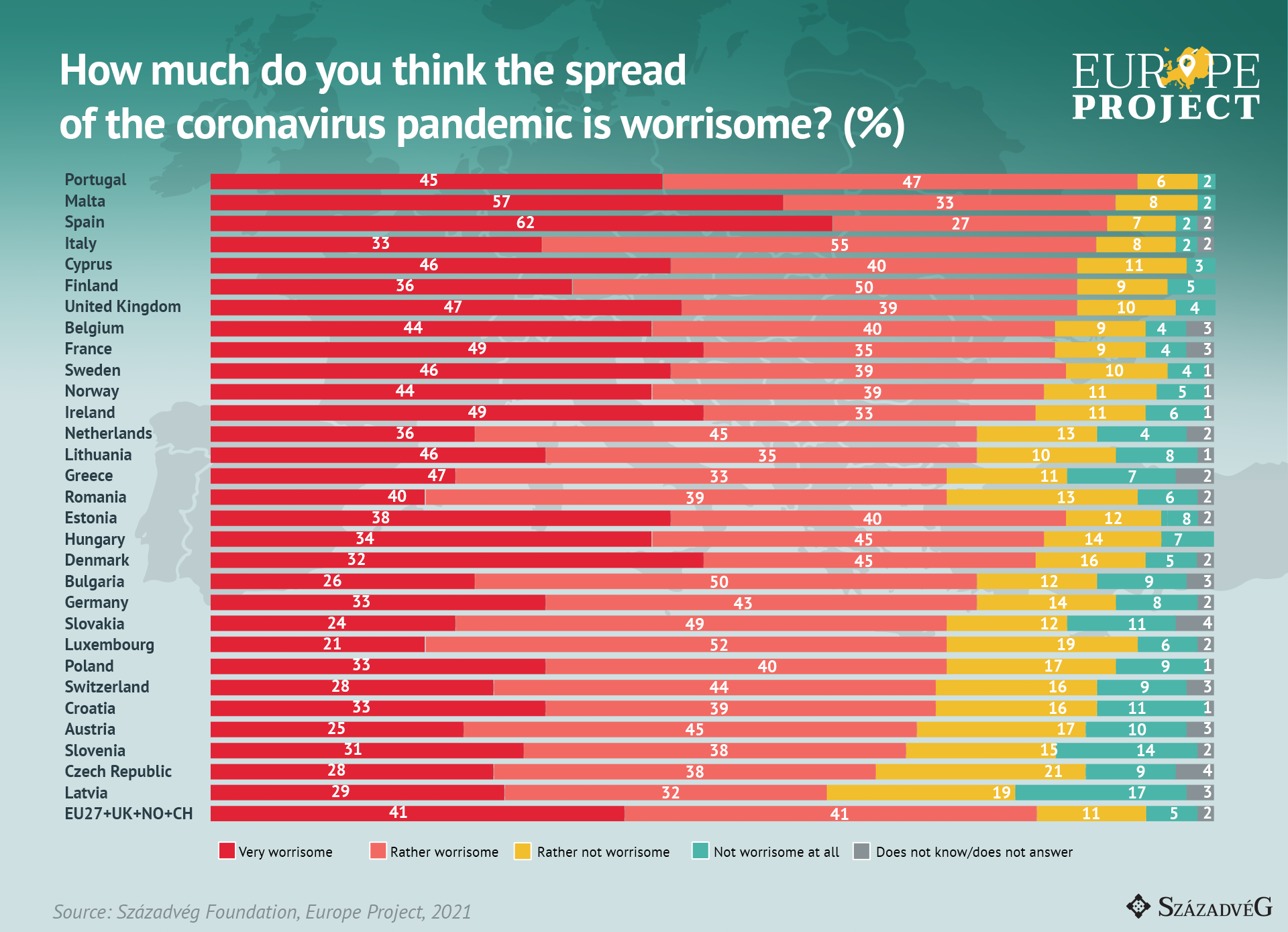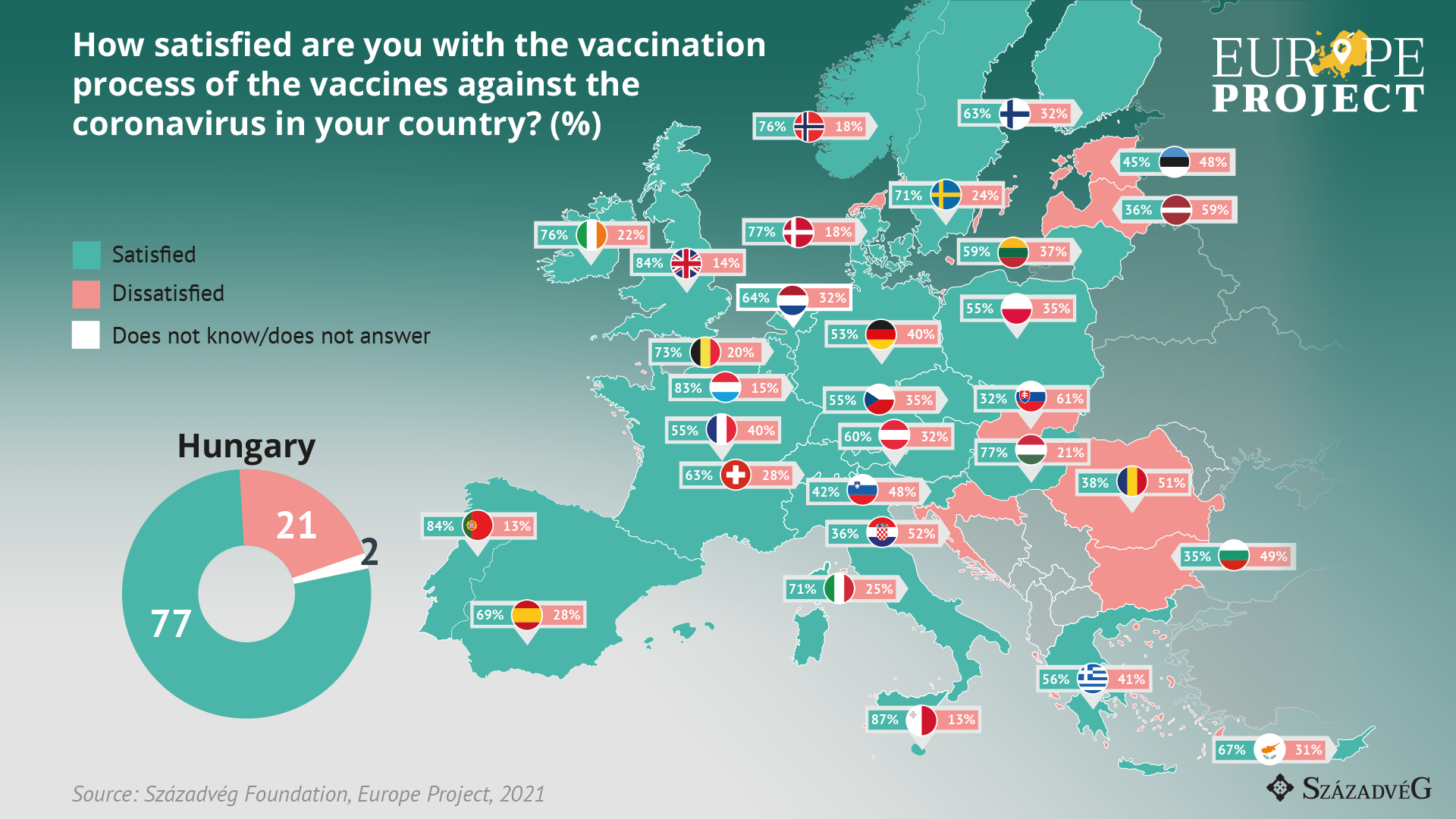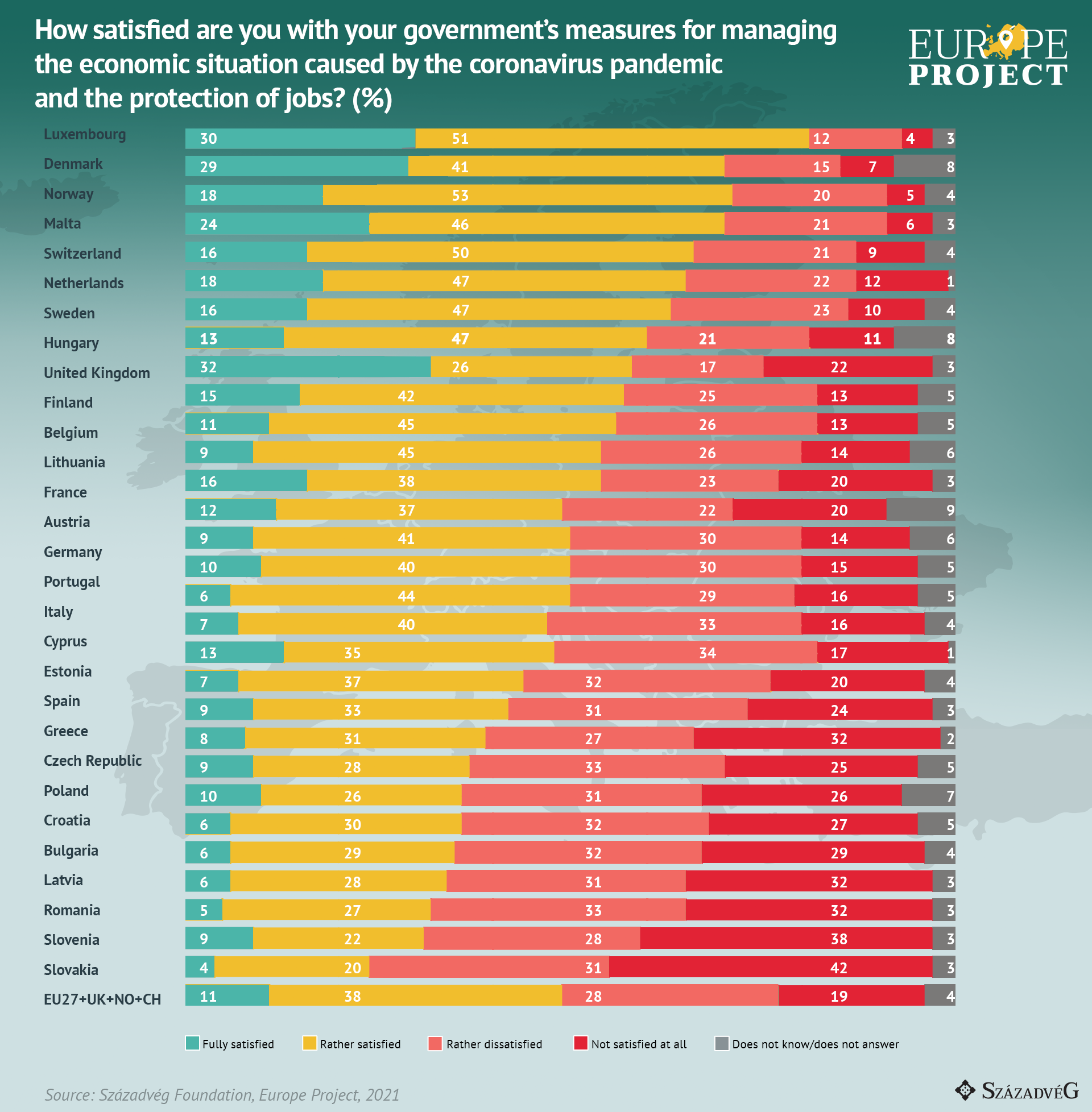The research of Századvég Europe Project 2021 covering 30 European countries shows that the coronavirus remains one of the most important challenges for the continent’s residents, but in the second half of 2021 it was realized in the specific expectations for the government. A smaller part of the countries, including Hungary, are basically satisfied with both the provision of vaccination and the measures to protect jobs, but in more than half of the countries on the continent, the image of a society that is very dissatisfied with the issue of economic mitigation has emerged.
Domestic population is realistic about the pandemic
Eighty-two percent of Europeans are concerned about the coronavirus pandemic, of which 41 percent think it is very worrisome and only 5 percent think the fears are exaggerated, the pandemic is not a cause for concern at all. The list is topped by Southern states [Portugal (92%), Malta (90%), Spain (89%)], followed by some Central and Easter European countries [Latvia (61%), Czech Republic (66%), Slovenia (69%)].
In this respect, Hungary is in the middle of the list, in the second third: 79 percent of the population is more or less concerned about the coronavirus, of which 45 percent think that the pandemic is rather worrisome and 34 percent think that the pandemic is very worrisome. The proportion of those who say the fear of the pandemic is excessive is around the European average (7%). It is interesting that there were no people in Hungary who could not take a stand on the issue.
In Hungary, anti-virus and virus-sceptical opinions did not play a decisive role. However, it cannot be said that there would be a majority of those who are watching the epidemic situation with increased concern.
The largest group in Hungary includes those who say that although the coronavirus pandemic is worrisome, it does not cause them increased fears that override everything else in life.
Regarding this, the Hungarian public shows the strongest resemblance to the Danish one.
Hungarians appreciate the government’s vaccine policy
Due to the population’s perception of vaccination, we are in the first third of the list of European states,
and in terms of the proportion of those who are fully satisfied, Hungary is leading the European list
– 44 percent of those surveyed said they were fully satisfied with the vaccination process.
It is widely acknowledged that, in addition to the central procurement of vaccines in the EU, Hungary is multifaceted with regard to providing vaccines. In the critical spring months, Hungary took the podium on the vaccination lists, and in August it was among the first countries that made the third dose possible. Vaccine shortages or vaccination capacity have not been a barrier to further increase the vaccination coverage.
The population’s satisfaction is mostly based on people’s everyday experiences and real results. The rate of those who were fully satisfied with the vaccination process is the highest in the other two success countries of the spring vaccination campaign, the UK and Malta. However, a radically different picture emerges in Slovakia and Latvia, with around 60 percent of the population being dissatisfied with their country’s vaccination program and the proportion of those who think their government has done its job best is less than 10 percent.
The pandemic is also an existential issue for the population
The coronavirus pandemic is not only a health issue in the lives of a significant part of the population, but also jobs at risk, postponed business opportunities and livelihood becoming more uncertain. In addition, looking at the satisfaction of Europeans, we can see that economic development and job protection are the areas where people would expect the most from their government.
While, despite prolonged problems, only one-third of the population in Europe was dissatisfied with vaccination, almost half of the population, 47 percent, were dissatisfied with managing the economic consequences. Hungary is in the top third of the list, where the majority of the population (58%) has a fundamentally positive view of the measures taken to alleviate the economic damage, and the proportion of those who are fully satisfied is the highest in Europe. At the same time, the proportion of those who were not satisfied at all at the time of the survey was relatively high, 22 percent, which suggests that
the public expects the government to mitigate the negative economic effects of the pandemic.
In the first half of 2016, the Századvég Foundation conducted a public opinion poll survey covering all 28 European Union Member States, with the aim to analyse the opinions of EU citizens regarding the issues that most affect the future of the EU. In a unique way, Project28 conducted the widest possible survey of 1,000, that is a total of 28,000 randomly selected adults in each country. Gaining an understanding of society’s sense of prosperity and mapping the population’s attitudes towards the performance of the European Union, the migration crisis and the increasing terrorism were among the most important goals of the analysis. The Századvég Foundation, on behalf of the Hungarian Government, conducted the research again in 2017, 2018 and 2019, which continued to reflect on the topics that most determined the European political and social discourse.
In 2021, the aim of the survey is again to map the population’s attitude towards the most important public issues affecting our continent. In addition to society’s sense of prosperity, the performance of the European Union and the attitudes towards the migration crisis, in line with the latest challenges affecting Europe, the dominant theme of this year’s poll is the coronavirus pandemic, climate change, energy supply and family policy. In addition to the European Union Member States, the 2021 research covered the United Kingdom, Norway, and Switzerland, interviewing a total of 30,000 randomly selected adults using the CATI method between 1 and 15 September.



